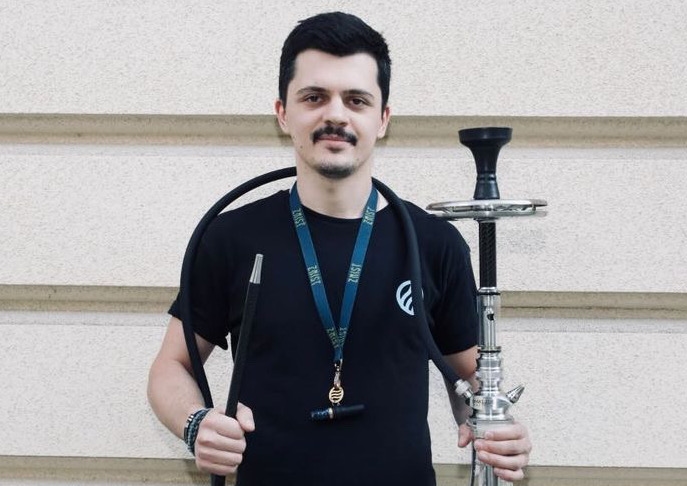Russian soldiers murder volunteers helping starving animals near Kyiv

At noon on March 4, an SUV drove through the streets of Bucha, formerly a cozy green town near Kyiv, now a hotspot of Russia’s war against Ukraine.
Three people were in the car: Serhiy Ustymenko, 25, a co-founder of a car repair shop, Maxym Kuzmenko, 28, a hookah server, and Anastasia Yalanska, 26, a lead recruiter at an IT company.
Bucha was and remains a dangerous place, now largely controlled by Russian forces. The three young Ukrainians were there on an important mission.
They had just delivered dog food to a dog shelter that had run out of it and were on their way back to pick up Ustymenko's parents.
They had just nearly made it home. As the car was approaching their house, there was a deafening sound.
A Russian vehicle – witnesses identify it as either a tank or an infantry fighting vehicle – opened fire on the car.
When the shooting stopped, Valeriy Ustymenko, the father of Serhiy, ran to the car. Everyone inside was already dead.
He dragged out the three bodies and took them to his basement, where he has been hiding from the constant shelling, like most people in Bucha.
Three days later, the bodies are still there. Due to shelling, they can’t be buried. Their friends and families can’t say goodbye to their loved ones.
Ustymenko’s father is still in the basement, with the bodies of his son and his son’s two friends.
There was no way that Russians didn’t know they were shooting at civilians, the victims’ friends say.
“The car was (obviously) civilian,” said Dmytro Zubkov, a friend of Maxym Kuzmenko. “Maxym was wearing a hat with a pom pom. They didn’t look like the military at all."

Serhiy Ustymenko, 25, loyal friend
Ustymenko turned 25 in December. Despite his young age, he had managed to achieve a lot.
He co-founded a car repair shop in Kyiv and united a big crowd of friends around it, said his friend Ivan Soloviy.
“He was the best driver of, well,” Soloviy paused, “all of Kyiv.”
Ustymenko was a member of several automobile clubs and groups, Soloviy said.
“His service station was always open for us. Recently, we would only get together there,” Soloviy said.
Friends remember Ustymenko as “the soul of any company,” but also a kind and reliable friend.
“He was a friend,” Soloviy said, sobbing, “that would never betray you.”

Maxym Kuzmenko, 28, relentless volunteer
Maxym Kuzmenko, 28, a hookah server in a Kyiv bar, is also remembered warmly by his friends.
“He was always there for those who needed him,” said Kateryna Zhvalyuk, his employer and friend.
During the coronavirus lockdown in Kyiv, Kuzmenko volunteered as a driver. He returned to volunteer work when Russia launched its full-scale invasion of Ukraine in late February.
When the invasion started, Zhvalyuk’s bar started helping the Ukrainian army and hospitals with food. Kuzmenko ran deliveries.
When the bar ran out of food, Kuzmenko decided to keep volunteering with his other friends, delivering essential goods to people across Kyiv Oblast.
Zubkov, a co-founder of a pizza restaurant chain, was one of those friends. He cooked meals that Kuzmenko delivered.
“We cooked for everyone who needed it,” he said. “More often we helped the elderly and children's cancer hospitals.”
“He always did more than was expected from him. You give him a task and he does more,” said Zhvalyuk. “I used to ask him: ‘Why are you doing more when it’s good enough already?’ He would answer: ‘I must get better than I am now’.”

Anastasia Yalanska, 26, brave and straightforward
Anastasia Yalanska, 26, was a talented IT recruiter.
She started her new job just three weeks ago. The team was happy to have her join them, her colleagues said.
“I asked her if she wanted to grow and run HR for a large company…how high she wanted to reach…she said: ‘Yes, I can do it’,” said Jeremy Achin, her boss. “She was very ambitious, she was not scared.”
Achin thought that with the right guidance Yalanska could achieve great heights in her field.
“But now we will never see that future,” he said, bursting into tears.
Andriy Piddubny, Yalanska’s former colleague, remembers her warmly. He said she was “professional, honest, and straightforward.”
“She always spoke her mind,” he said. “She was very dedicated and upbeat, everyone loved her.”
Yalanska’s best friend Anastasiya Hryshchenko said that her family and friends were concerned for her safety and asked her to stay away from places of heavy shelling.
“She always helped those in need,” said Yalanska’s husband Eugen Yalanskiy. “Until her last breath. She was the best of all people.”










